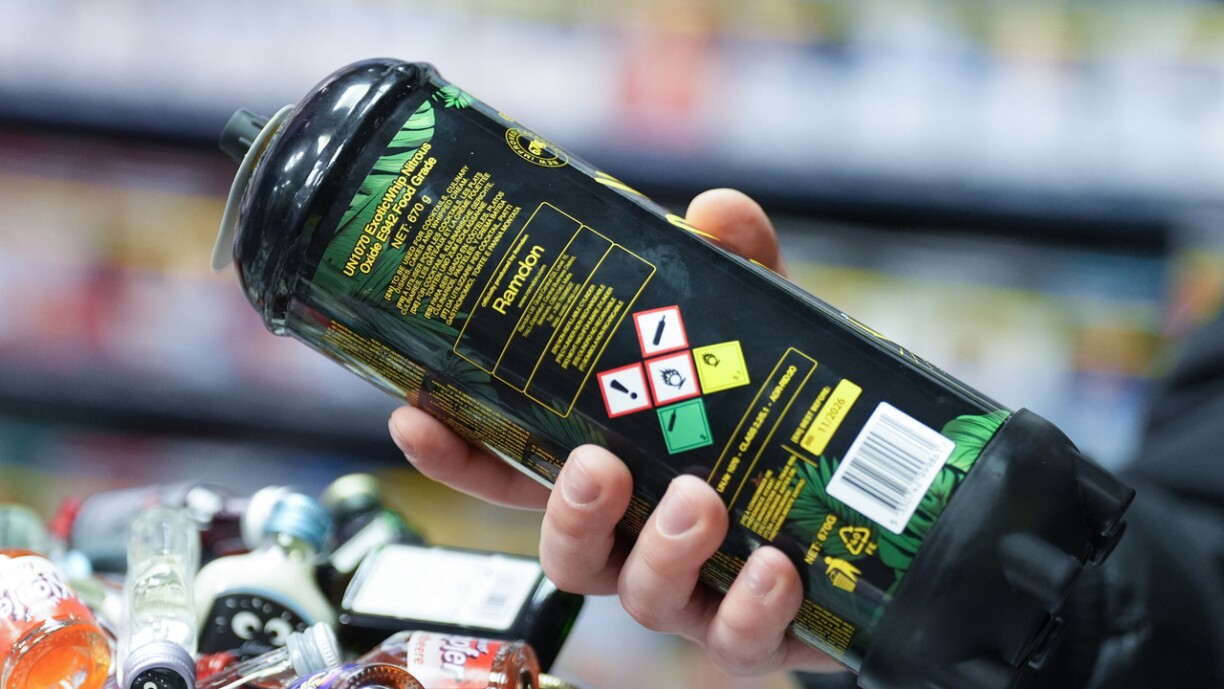
Last year, six tonnes of empty nitrous oxide canisters were collected across Luxembourg – three times more than the year before and sixty times more than three years ago, according to the national waste management initiative SuperDrecksKëscht (SDK). They stated in a press release that this sharp rise suggests that the gas is increasingly being used for purposes other than its intended ones.
Nitrous oxide, also known as laughing gas, is usually used for inflating balloons, as a propellant in whipped cream dispensers, or for anaesthesia in medical settings. However, because it is cheap and easy to obtain, it is becoming more popular among young people as a party drug. France, the UK and, soon, Germany have banned sales to minors, but Luxembourg has no such plans at present.
National Drugs Coordinator Dr Alain Origer explained that no country has yet carried out a serious impact assessment to see whether such a ban would work in practice. He stressed that prohibiting sales would require active enforcement in shops and kiosks, and that the substance could still easily be bought online.
For that reason, he believes a coordinated European approach would be more effective. He also pointed out that more discarded canisters in Luxembourg does not necessarily mean that the number of users has risen sharply, and that those working directly in the field are not currently seeing such a trend.
This is echoed by Carlos Paulos, Director of the PIPAPO initiative, which educates young people about safe partying and drug use. He noted that, while there are no signs of widespread use, there are occasional reports of small groups experimenting with the gas, often spotted carrying a balloon while out in public.
The high from laughing gas lasts only a few seconds, but Dr Origer warns it is far from harmless, as it can cause acute problems such as dizziness and, with long-term and heavy use, lead to neurological disorders and even paralysis. In such cases, nerve damage can be irreversible, he said.
There are also other hazards. Paul Rasqué, Councillor at the Ministry of the Environment, Climate, and Biodiversity, explained that the waste management syndicate SIDOR has reported incidents, including explosions, at waste incineration facilities, not only in Luxembourg but also abroad, linked to the incorrect disposal of canisters.
Authorities are therefore reminding the public never to put gas bottles or small canisters in household rubbish bins, but to dispose of them properly at recycling centres.